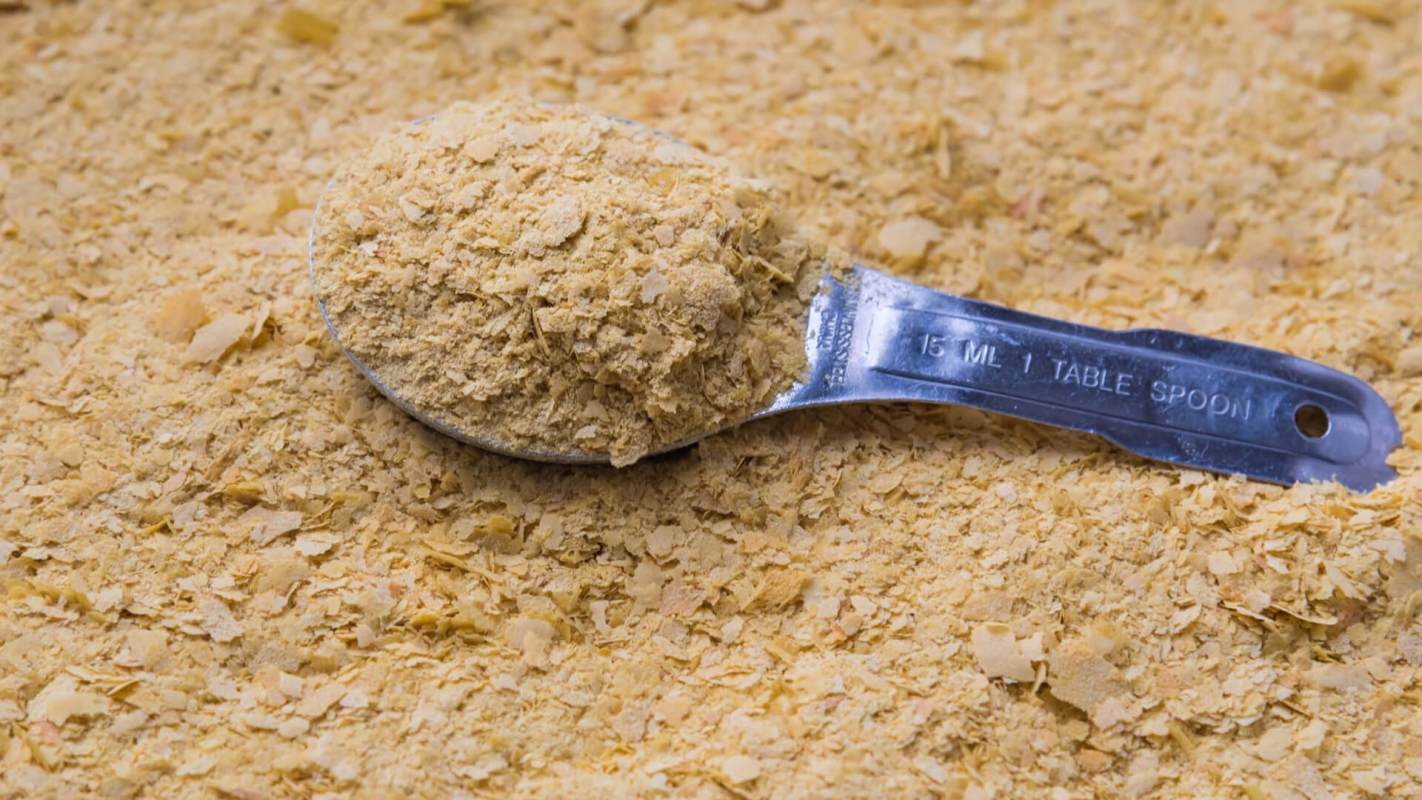For cheese lovers, going vegan or eating less dairy may sound like the worst thing in the world. But nutritional yeast could be the solution. This delicious flavor substitute can help you get your cheese fix while maintaining your diet.
What is nutritional yeast?
Eating yeast may seem strange, but nutritional yeast differs from the kinds of yeast you'd use for baking or beer brewing.
While sourced from the same strain of yeast (Saccharomyces cerevisiae), nutritional yeast is a dehydrated, edible version. It's harvested from products like whey, molasses, and sugar beets, then cleaned, dried, and crumbled into powder or flakes.
Both forms of nutritional yeast have the same taste but may have different uses depending on personal preference and what you're cooking. You can find nutritional yeast in the spice, baking, or supplements sections in most grocery stores.
Why is nutritional yeast a popular cheese alternative?
People on vegan, plant-based, or dairy-free diets love nutritional yeast because it is similar to cheese with a nutty, savory flavor. Even if you're not ready to give up dairy completely, it can be a great addition to a number of dishes.
Next time you're feeling creative in the kitchen, you can try new recipes like this curried cauliflower soup or experiment with a cheese-less mac and cheese for a comfort food classic.
If cooking isn't your forte, nutritional yeast is a tasty topping on simple dishes. Try sprinkling some on your favorite microwave popcorn or as a cheesy garnish on pasta.
Nicole Dynan, an accredited dietitian, shared her experience trying nutritional yeast for the first time with the Guardian. "I was pleasantly surprised. I didn't think it would be as good as it is," she said. "I'm a huge lover of parmesan cheese, and it gave me definite parmesan vibes. It has quite a rich flavor."
How does it help you maintain a healthy, sustainable diet?
Nutritional yeast can help you satisfy your cheese cravings guilt-free, as this superfood has many health benefits. It's a low-calorie substitute packed with protein, vitamins, minerals, fiber, and antioxidants.
The substance is rich with B vitamins commonly found in animal products, making it an amazing alternative for vegans and vegetarians. Two teaspoons of fortified nutritional yeast provide most, if not all, of your daily values for vitamins B2, B3, B6, B9, and B12.
Cutting back on dairy and meat consumption can also be better for the environment. According to the UN Food and Agriculture Organization, the livestock sector is responsible for about 14% of all polluting gas emissions. Trying new alternatives like nutritional yeast instead of cheese can help reduce this harmful pollution while improving your diet and nutrition.
While nutritional yeast is a lifesaver for some, it may be harmful to others with certain diseases and conditions. According to researchers, those with irritable bowel disease, hypertension, or glaucoma should avoid this product. If in doubt, check with your doctor before introducing it into your diet.
Want more? Follow The Cool Down on Instagram and join our Weekly Newsletter for cool stories and easy tips that save you money, time, and our planet.







